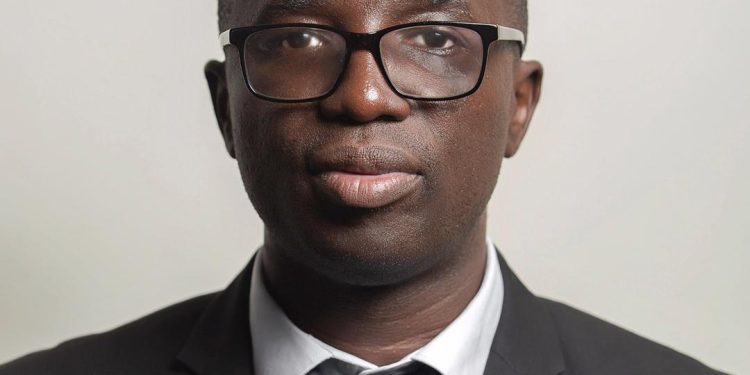CUTS International Director Urges Ghana to Rethink Trade Strategy Amid US Tariffs
Appiah Kusi Adomakoh, Director of the West Africa Regional Centre for CUTS International, has called on Ghana to reassess its trade strategy in response to rising global tariffs, particularly those imposed by the United States.
Speaking during the NorvanReports and Economic Governance Platform (EGP) X Space Discussion on Saturday, themed “Trade Without Privilege: Can Ghana Compete in a Tariff World?”, Mr Adomakoh stressed the need for Ghana to develop a robust trade policy to navigate evolving global trade dynamics.
According to Mr Adomakoh, former U.S. President Donald Trump’s tariff policies came as a surprise to many but underscored the importance of strategic economic planning. He likened Trump’s approach to game theory, emphasizing that Ghana must develop a dominant trade strategy to ensure resilience.
“As a government and as a nation, we need to go back to the drawing board and determine whether we want to be an import-driven or a manufacturing-driven economy. Each option comes with its own consequences,” he stated.
Transforming Ghana’s Trade Landscape
He highlighted the structural transformation of Ghana’s economy as a key requirement for improving domestic consumption. Without local market demand, Ghanaian exports could become vulnerable to external tariff impositions, limiting market access.
Mr Adomakoh noted that global trade giants such as Germany and China will also face economic challenges due to shifting tariff policies. For Ghana, he emphasized the importance of diversifying trade partners and investing in trade infrastructure to enhance intra-African trade under the African Continental Free Trade Area (AfCFTA).
“If America slaps tariffs on our goods, making them uncompetitive, China and other partners could offer duty-free, quota-free trade. We need to actively explore these alternatives and make strategic investments in trade logistics, including shipping and air transport,” he urged.
Avoiding Retaliatory Tariffs
Mr Adomakoh cautioned against Ghana imposing retaliatory tariffs, warning that such measures could provoke harsher countermeasures from major economies like the U.S. Instead, he recommended a consultative approach where government officials, economists, and trade experts devise appropriate responses to the tariff challenges.
“We should not engage in retaliatory tariffs because that will not solve the problem. If we do, Trump could increase tariffs to extreme levels, leaving our goods stranded at ports,” he warned.
Post-AGOA Uncertainty
With the African Growth and Opportunity Act (AGOA) set to expire this year, Adomakoh called for clarity on whether recent U.S. executive actions could override congressional trade policies. He urged Ghana to prepare for a post-AGOA landscape by seeking alternative trade agreements, including potential deals within the Commonwealth.
“I don’t understand why we are so fascinated with America as our main trade partner. Other opportunities exist in China, Australia, and among Commonwealth nations. Africa also offers significant trade potential under AfCFTA,” he remarked.
Strengthening Domestic Industry
Mr Adomakoh also highlighted the importance of fostering local entrepreneurship and manufacturing to reduce dependence on foreign investors who may not prioritize African trade markets. He called for policies that support Ghanaian industrialists capable of exporting goods across Africa.
“Many large-scale manufacturing businesses in Ghana are foreign-owned, with little incentive to expand into African markets. We must cultivate local champions who will drive regional trade,” he emphasized.
As global trade conditions continue to shift, Mr Adomakoh’s remarks underscore the urgency for Ghana to enhance its trade resilience, diversify its export markets, and invest in domestic production capacity to ensure long-term economic stability.








